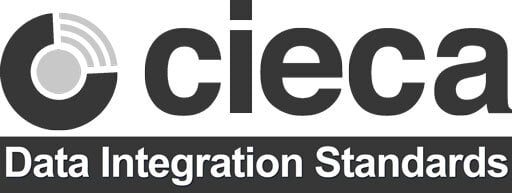Mitchell Shares Experience Using New CIECA API Standards (CAPIS)
As a founding CIECA member company, Mitchell, an Enlyte company, has used CIECA standards since the mid-1990s when the initial EMS standard was published. Phil Martinez, Mitchell’s senior technical consultant, said the company has always supported CIECA and its mission.
“We feel that CIECA standards are an important component to exchanging data in the collision industry,” said Martinez. “They have allowed for tremendous innovation over the past 30 years.”
Now, with the creation of CIECA API Standards (CAPIS), Martinez said that Mitchell plans to continue using the latest CIECA standards in customer integrations. He encourages the industry to join Mitchell and other supporting companies in the development of CAPIS.
What is Mitchell’s role in developing CIECA API Standards (CAPIS)?
Through its participation in CIECA's Architecture Committee, Mitchell helped identify the need and opportunity for JSON-based standards for REST APIs. The Architecture Committee has managed the 20+ year maintenance phase of the BMS XML standard, with its twice-yearly releases. We observed the slowdown of BMS changes, the need for JSON/REST standards and uncoordinated efforts among industry segments to convert CIECA standards to JSON/REST.
Since we have CIECA volunteers involved in the transition from EDI ASC X12 standards and dBASE to XML, it’s only natural Mitchell leads the transition—with several other companies—to the new CAPIS standards development.
How long has Mitchell been using CAPIS and how are they being used?
The current environment for developing integrations with trading partners has evolved from XML-formatted message payload and SOAP protocol to JSON-formatted payloads, REST Protocol, and OpenAPI Specification data contracts. CAPIS (for CIECA API Specification) was the answer for how to best exchange data we formerly rendered as CIECA EMS and BMS payload for JSON/REST/OpenAPI while still conforming with a CIECA standard.
From the moment CAPIS version 0.0.1 was released, Mitchell used it as the basis for our native REST services for Assignment and Claim. Our new CAPIS services are used for new integrations and for existing trading partners asking for a technology reset.
What are some of the benefits of using CAPIS and how have you found them helpful when communicating with other industry segments?
Initiating a new integration using a CIECA standard typically moves the effort forward without the typical back-and-forth discussions, misunderstandings, extra testing and troubleshooting. Both trading partners expect to use standards like HTTP, JSON and REST. A CIECA standard for the data contract provides credibility over what might otherwise appear to your partner as a one-off proprietary format.
What is the difference you have found between CAPIS and EMS/BMS?
The CAPIS schema can readily feed into OpenAPI, which is both a data contract and documentation. Many new members and consumers of BMS shy away from implementing it because of complex documentation. Instead, they are looking for a simpler solution. This reminds us that we don’t use most elements or enumerations (codes) in BMS for each implementation, which doesn’t work well now with everything displaying and cluttering up the documentation.
Which team members are part of CIECA’s board and committees?
Mitchell has always supported CIECA and data standards within our industry, and continues to do so today. This has allowed me to take a leadership role within the organization and represent Mitchell for almost 30 years.
Dan Webster, principal architect, IT Enterprise Architecture for Enlyte, and I have both been involved in CIECA since the first standards—ASC X12, EMS and BMS—were developed. In addition, Jack Rozint, Mitchell’s senior vice president of repair sales, was a founding member of the organization when it was formed in 1994.
I’ve been a long-standing board member for over 25 years, served many years on the Executive Committee and currently chair the Vehicle Damage & Imaging (VDI) and OEM Repair Procedures committees. In addition, I am a member of the Architecture, AI, Finance and Education/Marketing Committees.
Dan Webster is heavily involved in the development of CIECA standards. He chairs the Architecture Committee and leads the development of the current OpenAPI standards.
Abhijeet Gulati, Mitchell’s senior director of AI & ML engineering, is a member of the AI Committee.
What is the importance of getting involved in CIECA to help improve CAPIS?
We are in the initial stages of developing our latest OpenAPI standards and now is the time we need all segments of our industry to get involved. Don’t miss your opportunity to contribute to the growing library of CIECA standards.
Learn more about Mitchell.
If you would like to share information about your standards implementation in the next CIECA spotlight article, please email stacey@cieca.com.
